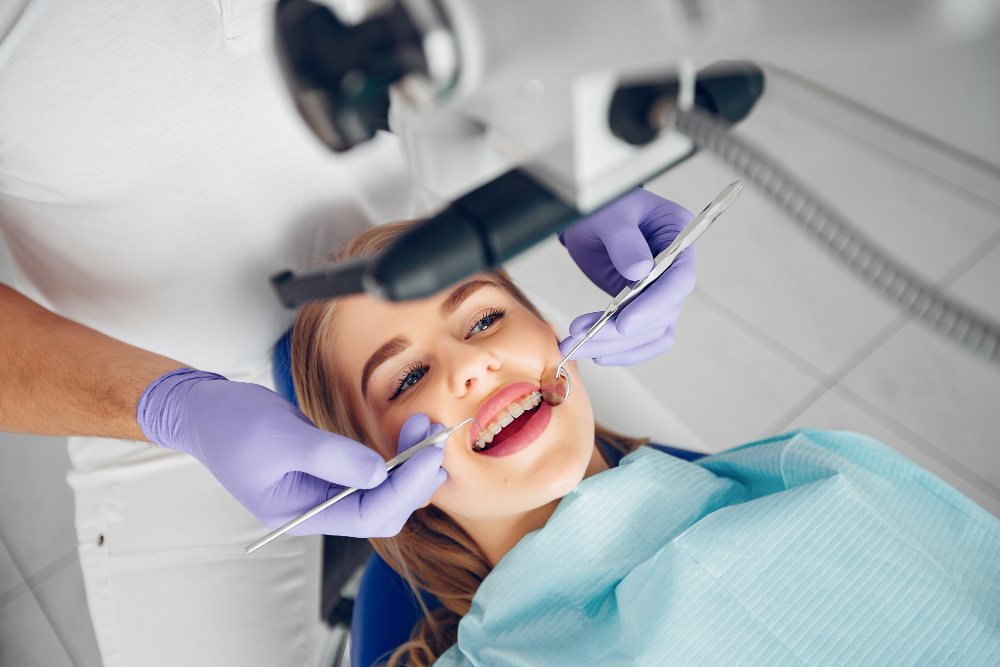Introduction:
Maintaining good oral health is essential for a beautiful smile and overall well-being. However, there are several dental myths that have persisted over the years, leading people astray in their dental care routines. In this blog, we will debunk five common dental myths that you probably believe and explain why they’re not true. By dispelling these misconceptions, we aim to empower you with accurate information to improve your dental health.
Myth 1: Sugar is the Sole Cause of Tooth Decay
It is a widely held belief that consuming sugar is the primary cause of tooth decay. While sugar plays a role, it is not the sole culprit. Tooth decay is actually caused by the interaction between bacteria in the mouth and carbohydrates, including sugars and starches. The bacteria feed on these carbohydrates and produce acids that erode tooth enamel. Therefore, it’s not just the amount of sugar consumed, but also the frequency and duration of exposure that contribute to tooth decay.
Myth 2: Brushing Harder Equals Cleaner Teeth
Many people believe that brushing harder will result in cleaner teeth. However, this is a misconception that can actually harm your dental health. Brushing too hard can lead to enamel erosion, gum recession, and tooth sensitivity. The key to effective brushing lies in using a soft-bristled toothbrush and employing gentle, circular motions. It’s the thoroughness of brushing and reaching all tooth surfaces that matters, not the force applied.
Myth 3: You Only Need to See a Dentist If You Have Dental Pain
One common myth is that dental visits are only necessary when experiencing dental pain. However, regular dental check-ups are crucial for preventive care and early detection of oral health issues. Dentists can identify dental problems such as cavities, gum disease, and oral cancer in their early stages, when they are easier and less expensive to treat. Dental visits also include professional cleanings, which help remove plaque and tartar buildup, reducing the risk of future dental issues.

Myth 4: Natural Remedies Are Sufficient for Dental Care
There is a growing belief that natural remedies alone can provide adequate dental care, negating the need for professional dental treatment. While natural remedies like oil pulling or herbal rinses may offer some benefits, they are not substitutes for regular brushing, flossing, and professional dental care. Dentists have the expertise and tools to diagnose and treat dental conditions effectively, ensuring optimal oral health.
Myth 5: Baby Teeth Don’t Matter
Some individuals believe that since baby teeth will eventually fall out, their importance is minimal. However, baby teeth play a crucial role in a child’s development. They help with proper speech development, enable the child to chew food effectively, and hold space for the permanent teeth. Neglecting baby teeth can lead to early tooth loss, misalignment, and potential oral health issues in the future. Establishing good oral hygiene habits from an early age is vital for lifelong dental health.
Myth 6: Teeth Whitening Damages Tooth Enamel
Another prevalent dental myth is that teeth whitening procedures, whether done professionally or with over-the-counter products, can cause permanent damage to tooth enamel. This misconception often leads individuals to shy away from teeth whitening treatments due to concerns about weakened or eroded enamel.
In reality, when performed correctly and under professional supervision, teeth whitening is a safe and effective procedure that does not harm the enamel. Teeth whitening products, whether they contain hydrogen peroxide or carbamide peroxide, work by penetrating the tooth enamel and breaking down stains or discoloration. The whitening agents used in these products are carefully formulated to be safe for tooth enamel while effectively removing stains.
However, it’s crucial to note that improper use of teeth whitening products or excessive and frequent whitening can lead to temporary tooth sensitivity or gum irritation. It is essential to follow the instructions provided by the dentist or product manufacturer and to consult with a dental professional before undergoing any teeth whitening treatment.
Furthermore, it’s worth mentioning that certain types of stains or discoloration may not respond well to teeth whitening treatments. In such cases, alternative cosmetic dentistry procedures like veneers or bonding may be recommended to achieve the desired results.
To maintain the effects of teeth whitening and protect tooth enamel, it is essential to practice good oral hygiene. Regular brushing with a soft-bristled toothbrush, flossing, and using a fluoride toothpaste can help maintain a healthy smile while preserving enamel integrity.
Conclusion:
Dispelling dental myths is essential for fostering accurate oral health practices. By debunking the five common dental myths discussed in this blog, we have provided you with the correct information to guide your dental care routine. Remember, understanding the true causes of tooth decay, adopting gentle brushing techniques, prioritizing regular dental visits, utilizing evidence-based dental care, and recognizing the significance of baby teeth are all essential for maintaining optimal oral health. Stay informed, make educated decisions, and consult your dentist for personalized dental advice and care.


